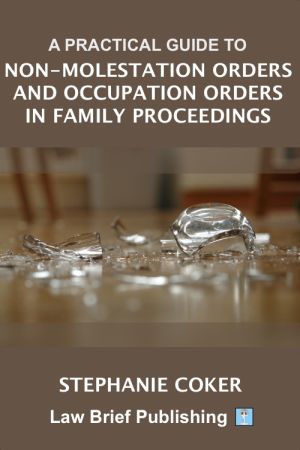We will be closed from 5pm Thursday 17th April for the Easter Bank Holidays, re-opening at 8.30am on Tuesday 22nd April. Any orders placed during this period will be processed when we re-open.

Molestation can have detrimental impacts on an individual’s health, safety, and wellbeing. In such instances, parties may consider it necessary to seek the court’s intervention by way of a non-molestation order and occupation order to keep them and any relevant children safe. This book provides a practical guide to non-molestation orders and occupation orders in family law proceedings. The text seeks to provide guidance on the general principles, practice, and procedure for family law practitioners and litigants who may find themselves making or resisting an application for non-molestation and occupation orders.
The book considers the courts general approach to the making of non-molestation orders and occupation orders, predominately in Family Law Act proceedings. It is acknowledged that these orders may also be sought in parallel Children Act proceedings. Whilst Children Act proceedings are not the focus of this book, it provides an insight into how to case management these cases in light of the court’s application of Practice Direction 12J of the Family Procedure Rules 2010.
Crucially, this provides a helpful toolkit for practitioners based on judicial commentary from judgments as to how to practically manage applications for non-molestation orders and occupation orders. It also looks at the options available to the court to dispose of these applications such as undertakings.